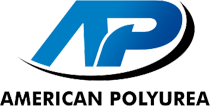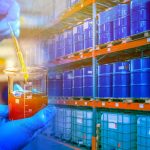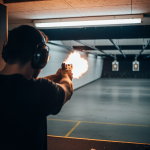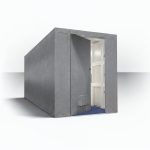Polyurea coatings have been getting much attention due to their nature, flexibility, and speedy cure process. These qualities have made polyurea a top pick in industries that need protection for surfaces exposed to harsh environments. With progress, the advancements in polyurea coatings are continuously pushing the boundaries of what can be achieved. This piece explores the innovations in polyurea coating technology, the significance of training for applicators, and the contributions of organizations like Coatings Academy, ArmorThane, and Polyurea Nation in improving industry standards.
Getting to Know Polyurea Coatings
Polyurea is classified as an elastomer that forms when an isocyanate component reacts with a resin mixture. The resulting material is a spray-applied coating recognized for its curing time, excellent adhesion, and resistance to water, chemicals, and wear. Polyurea can be used on surfaces such as concrete, metal and wood making it adaptable for purposes.
One of the benefits of polyurea is its curing time. Polyurea solidifies within minutes, unlike coatings that may require hours or days to dry. This quick setting allows surfaces coated with polyurea to be back in action, after application. This feature proves advantageous in environments where time efficiency is crucial.
Another important characteristic of polyurea is its flexibility.
The protective coating can shrink along with the surface it covers, adapting to temperature changes and structural shifts without developing cracks. This flexibility guarantees protection in harsh environments where other coatings may not hold up well.
Advancements in Polyurea Technology
Polyurea technology has made significant progress with new developments that enhance its performance and widen its range of use. Innovations in formulations have boosted the coatings resistance to chemicals, stability under UV exposure and ability to adhere to surfaces. These enhancements solidify polyurea as a choice for safeguarding surfaces in demanding conditions.
For instance the introduction of UV polyurea formulations has enabled their application outdoors without concerns about degradation from sunlight exposure. This breakthrough paves the way for utilizing polyurea in roofing, marine settings and outdoor structures.
Another notable advancement lies in the enhanced spray equipment designed for applying polyurea coatings. Advanced high pressure spray systems ensure application promoting coverage and consistent thickness. These systems simplify polyurea application on large scale projects boosting efficiency while minimizing waste.
Apart, from these strides ongoing research aims to develop eco-friendly polyurea formulations.
The new formulations are designed to lessen the impact of the coating process while still upholding polyureas high performance. With sustainability gaining importance these advancements position polyurea, as a forward thinking solution.
The Significance of Training in Applying Polyurea
Despite the progress in polyurea technology the effectiveness of the coating hinges on application. This necessitates professionals who have a grasp of the material, equipment and project requirements. Training plays a role in preparing these professionals to confidently and accurately apply polyurea coatings.
Coatings Academy offers training programs for polyurea applicators covering everything from polyurea chemistry to advanced application techniques. Participants learn how to prepare surfaces operate spray equipment and apply coatings under conditions. The hands on training provided by Coatings Academy ensures that applicators acquire experience for successful real world applications.
ArmorThane, a figure in the polyurea industry also offers training for individuals seeking expertise in polyurea application. ArmorThane’s training programs concentrate on practices for surface preparation, equipment handling and problem solving. By learning from industry specialists participants gain insights, into the challenges and solutions linked with polyurea coatings.
Polyurea Nation serves as a hub, for training and industry updates connecting professionals to the advancements in polyurea technology application methods and industry trends. The organizations dedication to education and professional growth ensures that polyurea applicators remain well informed about practices and innovations in the field.
The advantages of undergoing training for polyurea application are manifold. Firstly it equips applicators with knowledge about the developments in polyurea technology enabling them to select the appropriate formulations and techniques for each project to enhance performance and longevity.
Training also underscores the significance of surface preparation. Regardless of how effective a coating may be its performance will suffer if applied on prepared surfaces. By mastering surface cleaning, priming and treatment techniques applicators can achieve adhesion and durable outcomes.
Safety is a focus of training programs due to the involvement of high pressure equipment and chemicals in applying polyurea coatings. Participants learn how to use equipment adhere, to safety procedures diligently minimizing the likelihood of accidents or harm.
Ultimately professional training elevates the quality of coating applications. Skilled professionals can expertly apply polyurea coatings, with precision and consistency avoiding issues like overspray, drips and uneven coating thickness. This results in an uniform finish that offers protection for the surface being coated.
Real World Applications and Impact
The progress in polyurea coating technology and the value of training are clearly demonstrated in uses. In the construction field polyurea is utilized for waterproofing foundations safeguarding roofs and sealing parking structures. The strength and quick drying properties of polyurea ensure that these structures remain shielded from water damage and environmental impacts.
Within the realm polyurea coatings shield floors, machinery and containment zones from chemical spills, wear and tear and heavy usage. Its fast application process minimizes disruptions to operations while providing a solution for maintaining safety and durability in environments.
In transportation sectors polyurea is applied to boat hulls, tanker trucks and rail cars to defend against corrosion and physical harm. The. Robustness of polyurea guarantee that these vehicles can endure conditions while retaining their structural integrity.
Conclusion
The recent advancements, in polyurea coating technology have significantly elevated the performance capabilities and versatility of this material.
Enhanced formulations and application methods have propelled polyurea to establish benchmarks, in safeguarding surfaces. Yet the effectiveness of any polyurea endeavor hinges on the expertise and understanding of the individuals applying it. Entities such as Coatings Academy, ArmorThane and Polyurea Nation are crucial, in imparting the education required to attain outcomes. By keeping of advancements and engaging in professional instruction sectors can persist in reaping the unparalleled shield and productivity provided by polyurea coatings.







2 thoughts on “Exploring the Cutting-Edge Advances in Polyurea Coating Technology”
Pingback: Quality Matters: Comparing Polyurea Production in America and China - American Polyurea
Excellent article! As someone who has worked in the polyurea industry for years, I appreciate the depth of information presented here. The coverage of advancements in polyurea technology is both insightful and well-articulated. It’s great to see a resource that not only highlights innovation but also provides valuable knowledge for both seasoned professionals and newcomers to the field. Keep up the great work!